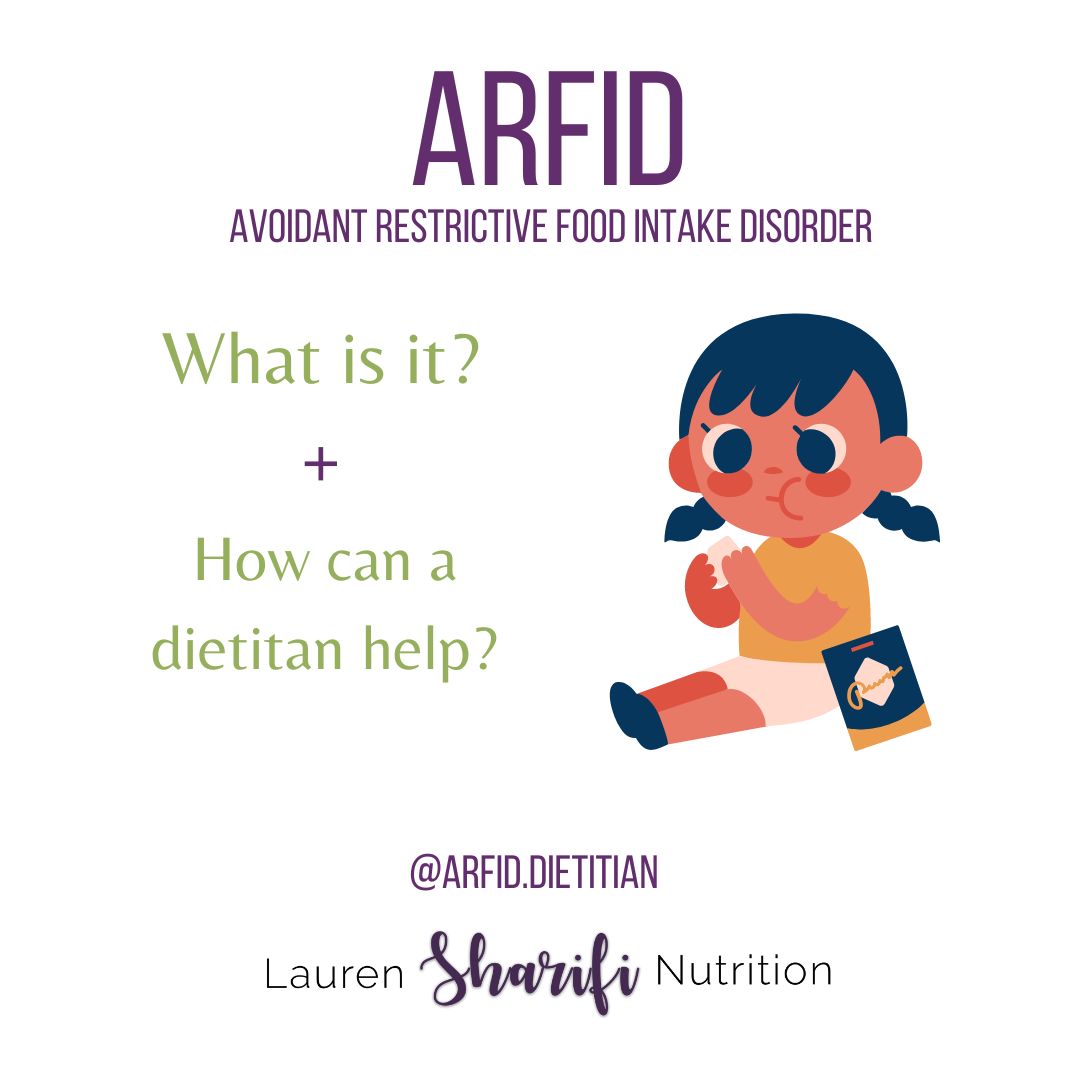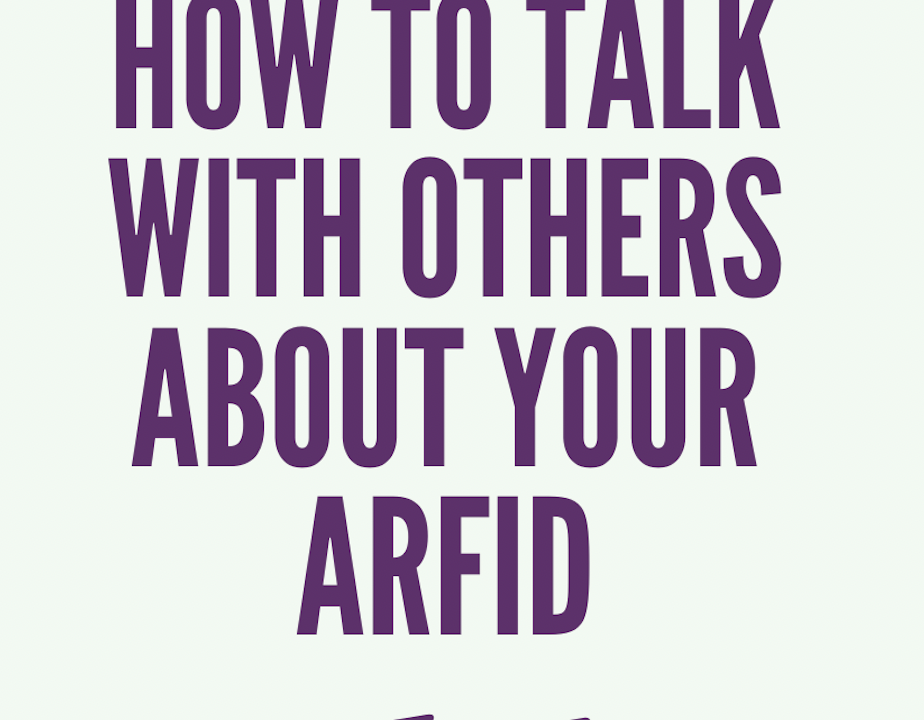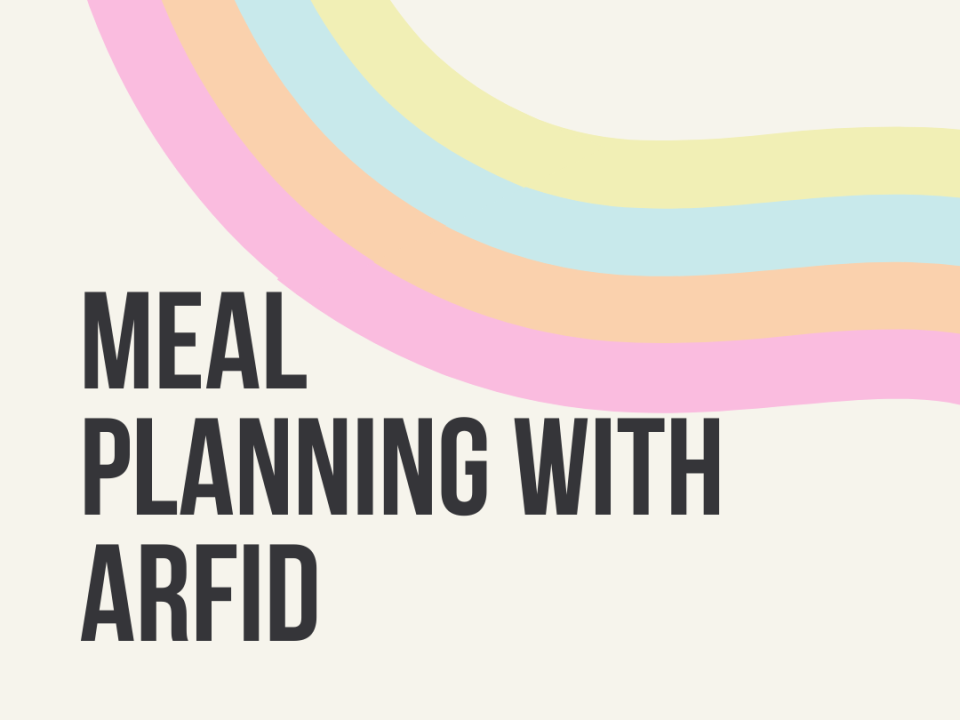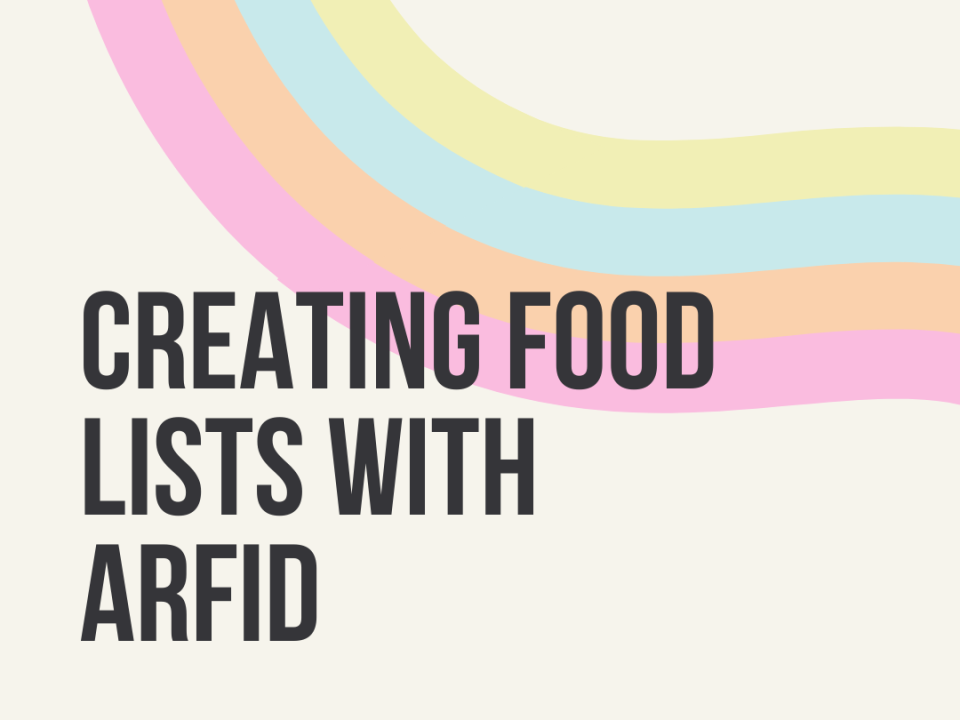What is ARFID and How Can a Dietitian Help?

Halloween Candy Activities for Kids
October 18, 2021
Foods and Kitchen Activities for Oral Sensory Seekers
December 10, 2021
ARFID stands for Avoidant Restrictive Food Intake Disorder and was officially a diagnosis in the DSM in 2013, but the eating disorder has been around for far longer than that. It was previously misunderstood and mistakenly diagnosed as extreme picky eating, OSFED, among others.
There are 3 subtypes of ARFID:
*Individuals may fall into one or more subtypes
- Restrictive: Individuals show little interest in eating or have low appetite/low interoceptive awareness, they may be easily distracted or forget to eat.
- Avoidant: Individuals accept few foods related to sensory differences ( hypersensitivity to taste, texture, smells, how foods look)
- Aversive: Food intake restricted due to traumatic or fear based experiences ( i.e fear of nausea/vomiting (emetophobia), gagging, choking, contamination, allergic reaction, illness).
Those with ARFID
- may or may not have body image concerns
- can be diagnosed with other eating disorders
- may or may not have weight loss or nutrition deficiencies
- may experience eating challenges may make eating in social situations and certain environments more difficult due to lack of safe foods or hypersensitivity to visual input, smells, and sounds.
- Can be of any age, gender identification and race
- often have a co-occuring diagnosis including autism, ADHD, OCD, anxiety, phobias, sensory processing differences.
Potential Causes of ARFID
- Biological Component: Neurodivergence. How individuals with ARFID relate to food differs from the “norm”
- Physiological Component:
- Trauma. One time event or multiple events over time. Some examples include choking, vomiting, health event, allergic reaction, pain with eating, sensory dysregulation with eating, pressure/force to eat or interact with feared/non-preferred food, eating labeled or criticized, lack of accommodation or support around food/eating
- Cultural/social component: i.e diet culture, fatphobia, healthism, abelism

Why is food avoided/restricted?
- anxiety, causing decreased appetite
- fear of gagging or choking
- limited food variety/acceptance
- potential weight loss or inability to gain weight/grow (in children)
- food sensory aversions
- food disgust/disinterest
- fear of feeling ill or negative health outcome from eating
- food or eating feels unsafe “brain says no”
- frustration/shame around eating differences
When to seek help from a dietitian?
- unable to meet needs for growth and development
- want help discovering coping skills to make eating more accessible
- want help discovering accommodations to support eating
- want to improve quality of life
- want to expand accepted foods
- want help discovering alternative ways to nourish body
How a Dietitian can Help with ARFID?
- Reduce mealtime and feeding anxiety.
- Assess potential nutrition deficiencies and provide appropriate recommendations as needed.
- Assess barriers to feeding including causes of feeding or eating difficulties.
- Referrals to additional health care providers (i.e therapist, occupational or speech therapist), as needed.
- Provide/recommend accommodations to make the eating environment feel safe and comfortable.
- Make safe and preferred foods more accessible and available.
- Promote strategies for simplifying eating, meal planning and food preparation that work for the individual.
- Non-diet nutrition education.
- Help identify foods that fit sensory preferences.
- Client led food exploration.
Long Term Goals of Working with a Dietitian for ARFID
- Reduced meal time and food anxiety
- Accessible eating and meal preparation strategies
- Increased number of accepted foods ( if desired by the client)
- An individualized plan for how to approach feeding and introducing new foods
- Improved quality of life
- Weight restoration or growth
- Resolved nutrition deficiencies
The first goal of Lauren’s work with her clients is to help reduce both the patient and/or parents anxiety at meal and feeding times. She takes a very patient led/centered approach and uses Responsive Feeding Therapy and Neurodiversity Affirming Model frameworks in her practice which helps her clients feel more empowered bring about internal motivation that drives food acceptance and improved quality of life.
Need help?
I am currently accepting new virtual clients with eating and feeding disorders including ARFID. If you have any questions you can book at 15 minute discovery call or contact me directly.



